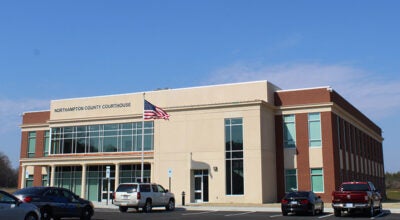New law expands DNA collection
Published 9:20 am Monday, February 7, 2011
RALEIGH – North Carolina law enforcement will be able to solve and prevent more crimes thanks to a new law that allows DNA collection from certain arrestees, Attorney General Roy Cooper said last week.
Beginning February 1, a new state law backed by Cooper will allow law enforcement to collect DNA upon certain violent felony and misdemeanor arrests for inclusion in the state’s DNA database.
“DNA is rock-solid evidence that the forensic lab uses daily to pinpoint suspects and clear the wrongly accused,” Cooper said. “Taking DNA samples from arrestees will help prevent crimes, clear unsolved cases, and bring justice to victims.”
North Carolina’s DNA database, which is maintained by the State Bureau of Investigation, currently contains more than 200,000 profiles and has helped solve more than 1,900 cases since its inception. The SBI had more hits to the database in 2010 than in the first 10 years of the DNA program combined. Including arrestees is projected to help solve even more murders, rapes and other crimes, up to 100 cold cases the first year.
DNA evidence recovered from crime scenes can be compared to suspects developed by local investigators and also used to search for a hit, or match, to a profile already in the database. A hit to the database can help law enforcement solve a case with no known suspects and can also clear wrongly accused suspects.
Starting February 1, sheriff’s offices and police departments will gather DNA from certain arrestees by cheek cell collector. The DNA will then be analyzed and the SBI will upload it to the state and national DNA databases. If an arrestee isn’t convicted or the case is dismissed, the sample may be eligible for removal.
North Carolina’s database is part of a national DNA database called CODIS (Combined DNA Index System), which is overseen by the FBI. Across the country, more than 20 other states and the federal government have also passed laws that allow them to collect DNA samples from arrestees. Since adding arrestees to its database beginning in 2003, Virginia has gotten more than 600 matches to arrestees’ DNA.
Courts have upheld the practice as constitutional and have equated the collection of DNA at arrest to the taking of fingerprints at booking. State and federal laws protect the database from unauthorized access or use, and the DNA profile used does not contain medical information.
Forensic scientists from the SBI lab have conducted 15 training sessions across the state through the North Carolina Justice Academy to help law enforcement agencies prepare to implement the new law.
Federal funds are available to pay for a portion of the testing. Four forensic scientists and three DNA technicians are in the process of being hired to analyze and review samples, distribute swab collection kits to law enforcement, and help with training.



